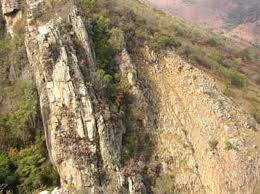26th October
4004BC may be a long time ago in human terms but is recent to the slow grind of the Earth and its
changing scape. The Earth is
4.54 billion years old
The fact that the world on which we reside is four and a half billion years old strikes me as being more reassuring and awe-inspiring, both at the same time, than trying to imagine it bursting forth fully formed at the same time the bowl and the wheel are being created by Man
It's testament to our talent for myth weaving and our ability to adapt every naturally occuring phenomena into our own more recent experience. We can't really picture a rock sitting being worn away for aeons or a tree patiently growing while civilisations rise and collapse, so we invent a fantastic facsimile of our dwelling place, on in which we are front and centre to it all.
Over time we revise our myth making to take in more information, which is why there are many religious groups that accept evolution. And, like remnant flat earthers, creation scientists feel they have to defend the version where the whole shebang is created in a week,
6016 years ago, because it's intrinsic to the Truth of scripture.
Whether we want to see ourselves preoccupied on the outskirts of Eden with inventing various calendars is up to our individual sensibility but it does seem that the scriptural literalist will have to find a way of pushing those early Nile colonies a little further into the future in order that they don't get in the way while the heavens and the earth are being created.




